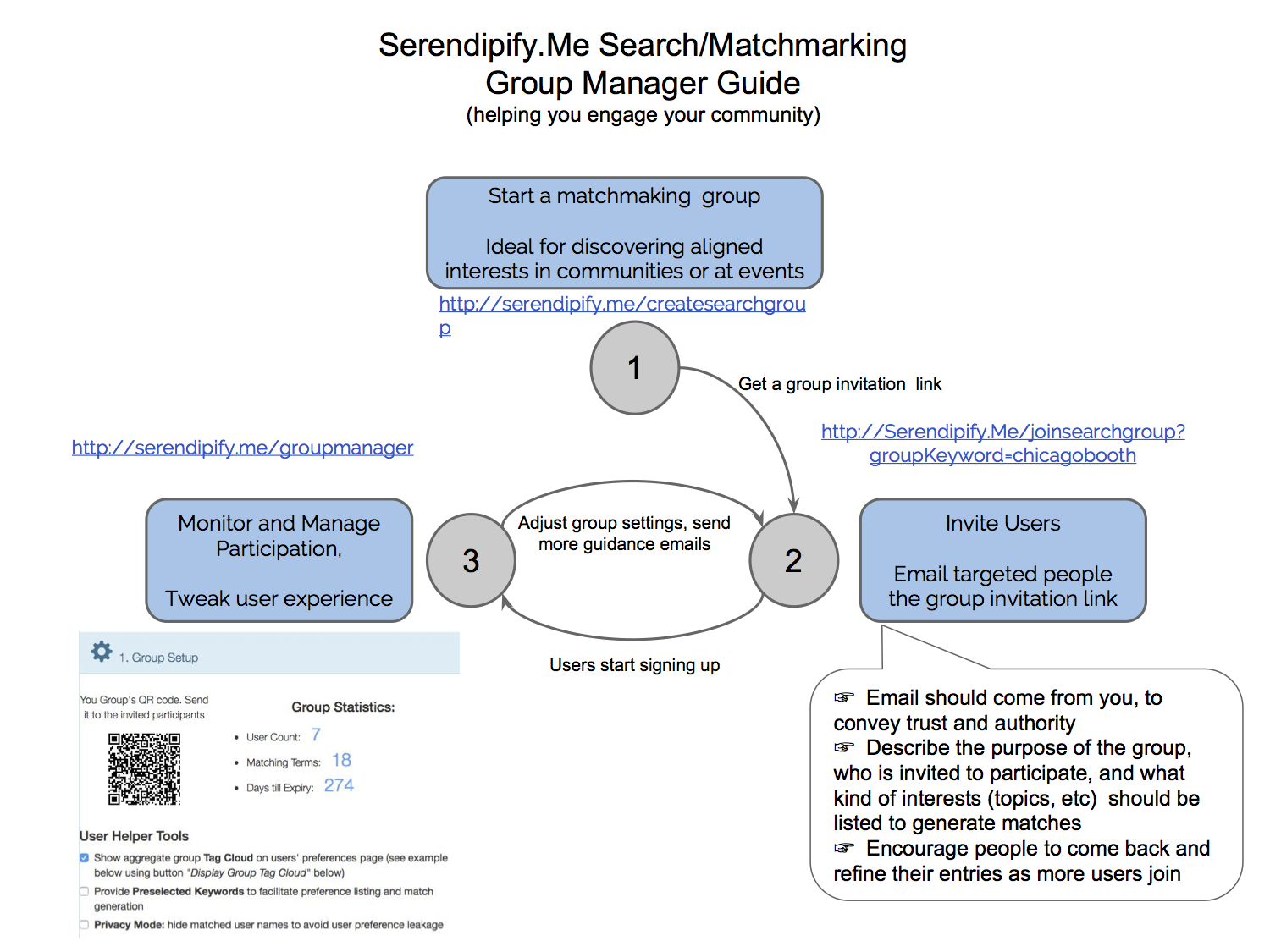Academic Community Leader's Quickstart Guide
You're in charge with getting your alumni into a setting where they can find collaborators.
- Create a dedicated matching instance for (each) group of people who have a good chance of leading to partnerships: people from the same cohorts, people from the same industries, departments, or cross-academic institutions
- Email (or otherwise send) the link to all the targeted participants, and persuade them to participate.
- Monitor and manage the success (in terms of matches in the group), and tweak the matchmaking functionality, invite more participants, or help focus the conversation, to get matches for everybody.
As the person responsible for engaging the alumni/student community, you will have at your disposal a variety of matching based mechanisms.
Your initial step is to set up one (or multiple) focus groups where you invite everyone who should be part of the matchmaking. Then, depending on the type of matching you want to facilitate, you will choose from the following:
Group Matching
- This is the main tool that you should be using in your community.
- We match everyone to everyonee, all are equal. Participants are assumed to be people in the community who have latent potential and desire to apply some of their skills
- The main feature of our matching mechanism - anonymous participation with private information - should be attractive to people who are very focused on their goals/interests.
- We match people on things they are ready to collaborate on. This is different than their skills - it's more focused on their actionable passions. As the organizer, you should convey this to the participants.
Categorical Matching
- This helps you match people in separate roles, e.g. Mentors to Students
- The users are presented with the exactly same process (join a search group, enter interests, and connect with the matching parties), with the constraint that matches are done across the groups only.
The main organizer workflow is illustrated below:

Notes for the search group organizer/manager:
- We expire the groups in 2 weeks. This is to ensure the quality (freshness) of the matches that we generate. Links to expired groups will no longer work.
- You can request extensions for the search group expiry period . This is where we will charge you money, to cover some of our costs. You might have noticed that there are no advertisements, and we plan to keep the service running that way. Send email to payments@Opportunity.Exchange for further details.